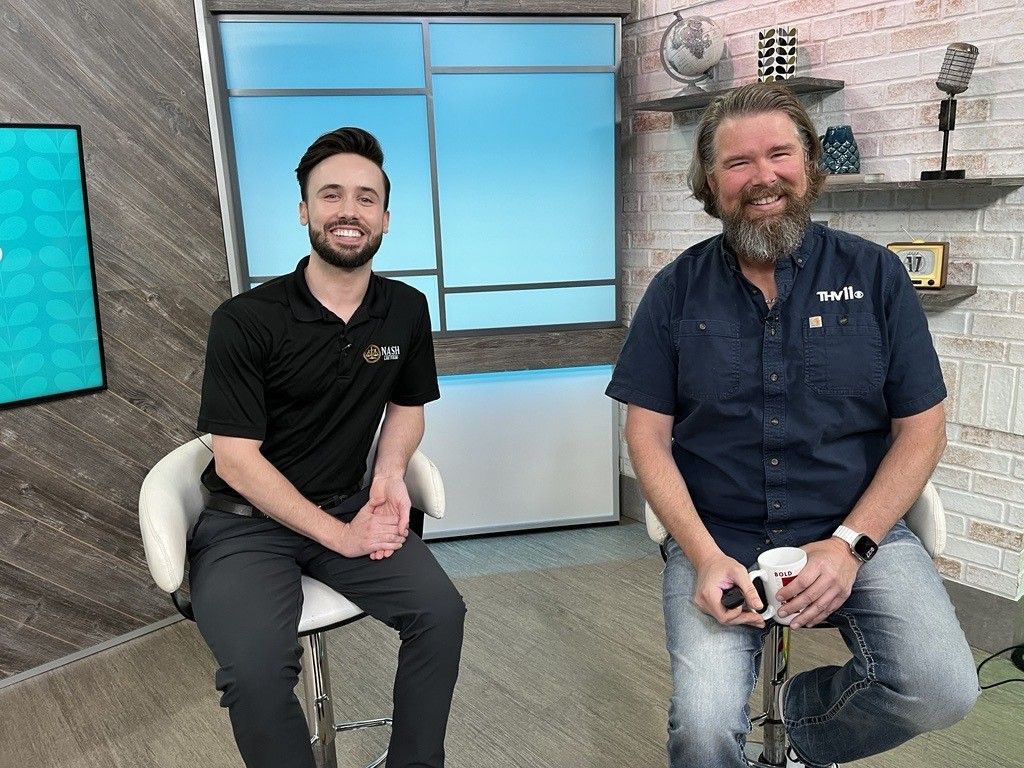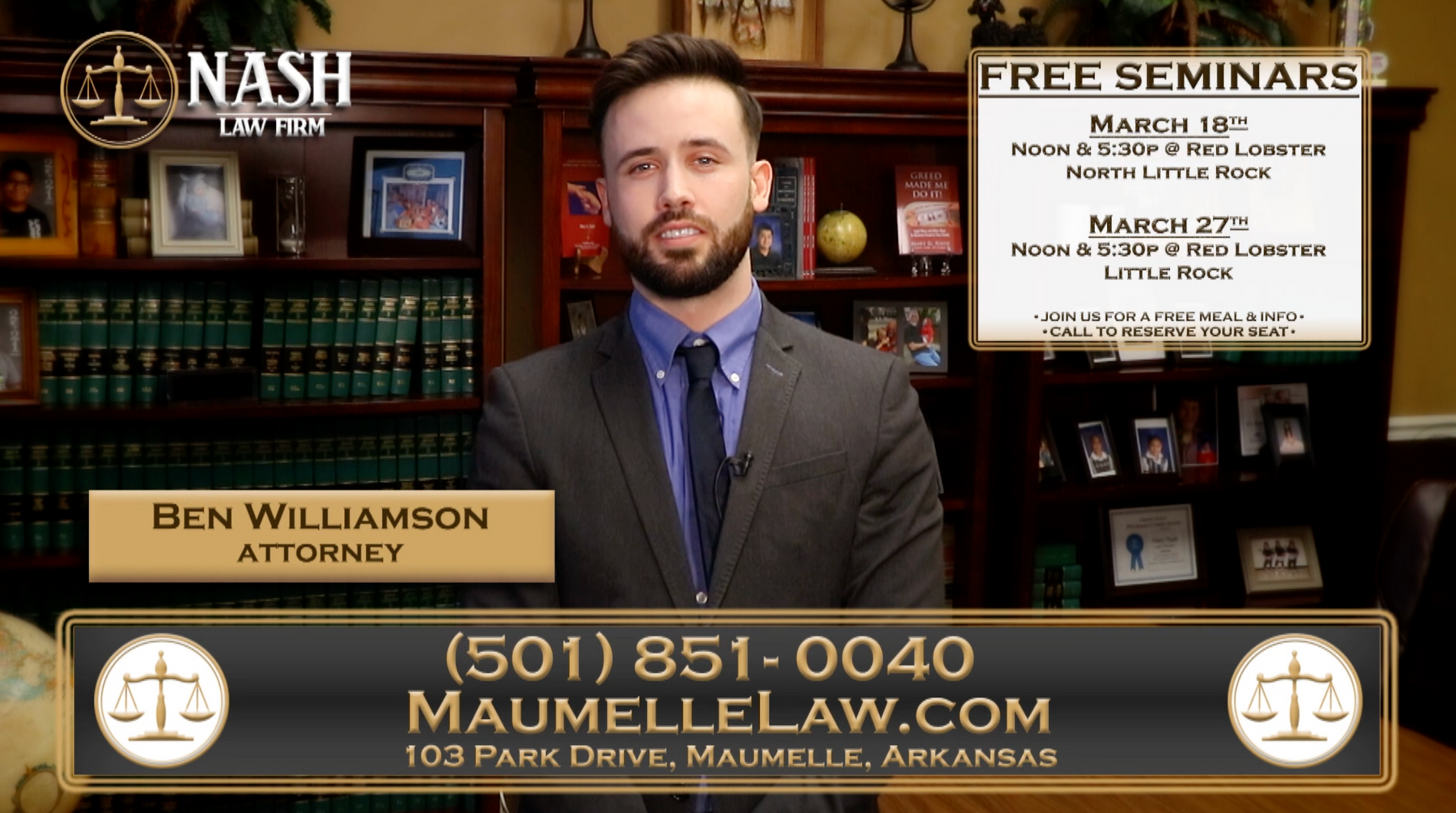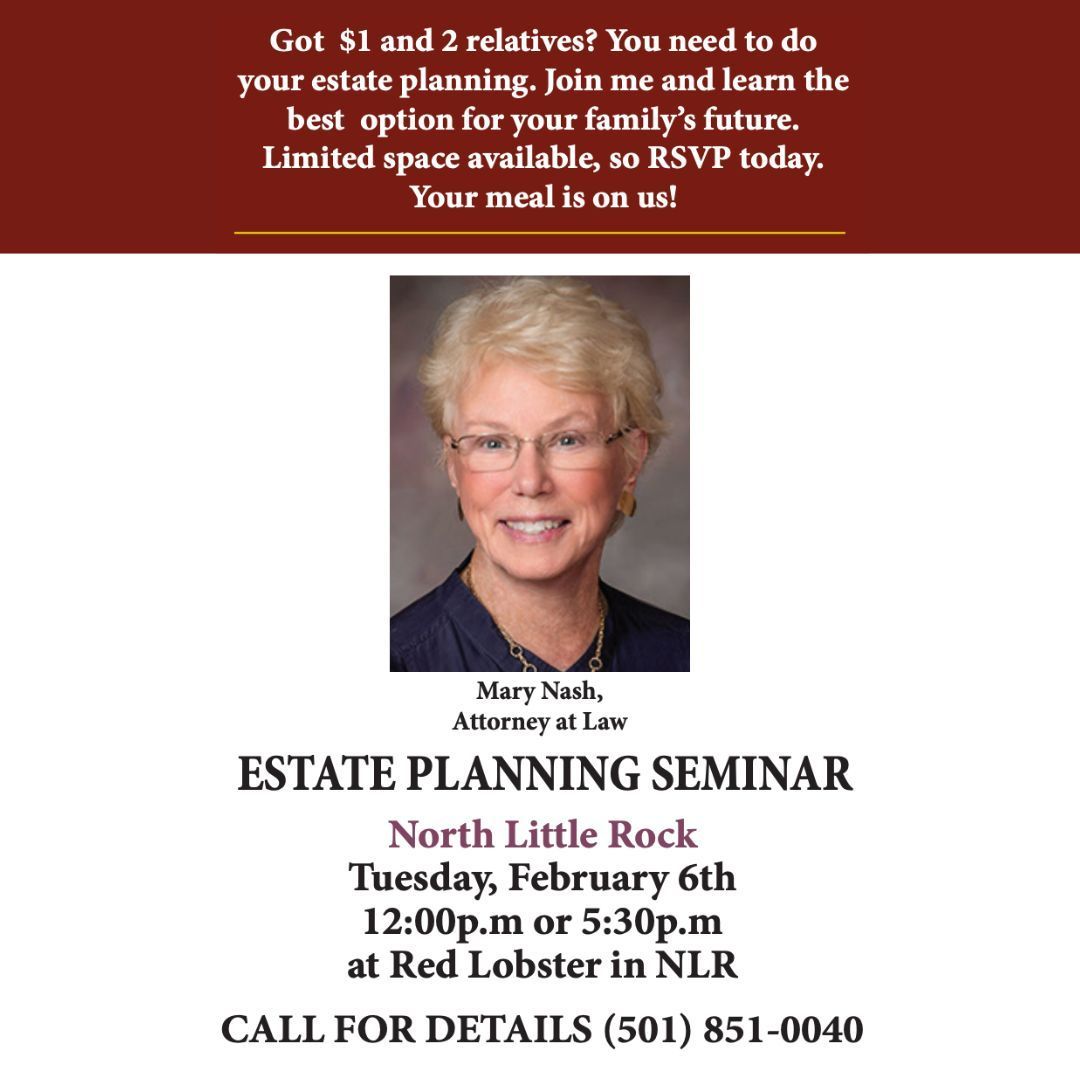
Ben says: Probate is the long and expensive legal process that that your heirs must go through to access your estate if you don’t do some estate planning. It’s also the legal process that allows your creditors to get a share of
your estate before your heirs even see a dime. Keep in mind that Probate is designed for your creditors NOT for your heirs.
Does a Will keep me out of Probate?
Ben says: I like to call a Will a “Ticket to Probate”. A will is only useful if we are already in Probate Court. You really want to make sure your estate planning protects all of your assets from going to Probate in the first place. This can be
done with a trust, but it needs to be done correctly. Think of estate planning like you’re trying to get in position to see the totality of the eclipse. If any part of your estate is not covered by your trust, you won’t be in the right position
to avoid probate!
After I get a trust am I automatically protected from Probate?
Ben says: No, and I unfortunately see this a lot when people get their estate plans from online forms. When we prepare a trust, it’s more than just signing some paperwork. We need to make sure that your trust covers all of your
assets. Sometimes that comes in the form of deeding land you own to your trust, sometimes it means changing the ownership of an account you have to your trust, and sometimes it’s as simple as changing the beneficiary designation
of an account to your trust. The goal is to ensure ALL of your assets are within the shadow of your trust.
How do I make sure my trust will cover all of my assets?
Ben says: The first step is to work with an attorney who is familiar with Trust planning. At Nash Law Firm, we guide you through the process and meet with you regularly over the course of a month or two after your trust is signed
to make sure your assets are protected. Before visiting with us, take a moment to think about everything you own. Do you have accounts with multiple banks? What about your vehicles? Do you have a business? Do you have any land that
has been passed down through your family that you want to protect for future generations? After we know what you have to protect, we can help you achieve a totality of estate protection.
DISCLAIMER:The information provided on this website does not, and is not intended to, constitute legal advice; instead, all information, content, and materials available on this site are for general informational purposes only. Information on this website may not constitute the most up-to-date legal or other information. This website contains links to other third-party websites. Such links are only for the convenience of the reader, user or browser; the Nash Law Firm does not recommend or endorse the contents of the third-party sites.
Readers of this website should contact their attorney to obtain advice with respect to any particular legal matter. No reader, user, or browser of this site should act or refrain from acting on the basis of information on this site without first seeking legal advice from counsel in the relevant jurisdiction. Only your individual attorney can provide assurances that the information contained herein – and your interpretation of it – is applicable or appropriate to your particular situation. Use of, and access to, this website or any of the links or resources contained within the site do not create an attorney-client relationship between the reader, user, or browser and website authors, contributors, or Nash Law Firm.

So, why should a living trust be on your radar? Firstly, it offers unparalleled privacy and efficiency. Unlike a will, which goes through the public spectacle of probate, a living trust sails smoothly, transferring assets to heirs without the prying eyes of the public. This means less stress for your loved ones during a time of grief.
A living trust also grants you control. Even in the event of incapacitation, your wishes regarding how your assets are managed and distributed remain intact, thanks to the trustee you’ve appointed. It’s like having the captain of your ship navigate through storms without losing direction.
Finally, consider the flexibility. Life is unpredictable, but a living trust adapts. It can be revised as your circumstances change, ensuring your estate plan mirrors your current life stage and desires.
At Nash Law Firm, we believe in crafting estate plans that fit like a glove. A living trust might just be the perfect fit for you. Contact us today to get started on your estate planning.

This role is ideal for someone who thrives in a fast-paced environment, has a keen eye for detail, and possesses excellent organizational skills. Our ideal candidate is someone who not only has significant experience in estate planning and probate but also brings a proactive approach to their work, ensuring clients receive the best possible service.
At Nash Law Firm, we pride ourselves on a collaborative and supportive work culture, where each team member's contributions are valued and recognized. If you are looking for a rewarding career move and are ready to make a significant impact, we would love to hear from you.
Interested? Email your resume to connie@maumelleaw.com. Join us and become a part of a dynamic and growing team at Nash Law Firm.

Mark Your Calendars!
North Little Rock
- Date: Monday, March 18th
- Location: Red Lobster, North Little Rock
- Session Times: 12:00 PM & 5:30 PM
Little Rock
- Date: Wednesday, March 27th
- Location: Red Lobster, Little Rock
- Session Times: 12:00 PM & 5:30 PM
Our seminars offer a unique opportunity to learn more about the essentials of estate planning, including wills, trusts, powers of attorney, and healthcare directives. Whether you're just starting to think about your estate plan or looking to update existing documents, these sessions are tailored to provide valuable insights and answers to your most pressing questions.
Why Attend?
Estate planning is more than just drafting a will—it's about ensuring that your assets are protected, your health care wishes are respected, and your loved ones are provided for in the way you intend. Our seminars are designed not only to educate but also to empower you to make informed decisions about your future.
How to Reserve Your Seat
Spots are limited, and interest is always high for these informative sessions. To reserve your seat, please call us at (501) 851-0040. Don't miss this chance to take control of your future and gain the peace of mind that comes with a well-planned estate.
Remember, planning today can prevent uncertainties tomorrow. We look forward to helping you plan your future at our upcoming seminars.

Do: Start Now
The best time to plan your estate was yesterday; the next best time is today. Whether you’re starting from scratch or updating an existing plan, the earlier you start, the better. Changes in laws, family dynamics, and financial situations are inevitable, making proactive planning essential.
Don't: Underestimate Digital Assets
In today's digital age, your online presence—from social media accounts to cryptocurrency—plays a significant role in your estate. Ensure these assets are included in your estate plan, complete with access instructions and desired outcomes for each.
Do: Regularly Review and Update Your Plan
Life’s only constant is change. Major life events like marriages, divorces, births, and deaths can significantly impact your estate plan. Aim for a comprehensive review every two to three years or after any significant life change to ensure your plan remains aligned with your current wishes.
Don't: Go It Alone
Estate planning is complex and nuanced. Engaging with professionals at Nash Law Firm can provide you with the expertise needed to navigate the intricacies of estate laws, taxes, and more. Tailored advice can make all the difference in efficiently managing and protecting your estate.
Do: Consider the Emotional Impact
Estate planning is not just about assets; it's also about people. Consider the emotional and relational dynamics within your family when planning. Clear, open communication about your decisions can help prevent misunderstandings and conflicts after you're gone.
In 2024, let's approach estate planning with clarity, foresight, and the right support. At Nash Law Firm, we're committed to helping you protect what matters most—today, tomorrow, and for generations to come.

Inventory Your Assets: Begin by listing all your assets, including real estate, investments, retirement accounts, insurance policies, and personal property. Don't forget digital assets, which are increasingly significant in our digital age.
Review Your Family Needs: Consider the needs of your family, including guardianship for minor children, financial support for your spouse, and any special considerations for family members with disabilities.
Update Your Will: Ensure your will is up-to-date and reflects your current wishes. This document is foundational in estate planning, directing how your assets should be distributed.
Establish Trusts as Needed: Trusts can offer more control over how your assets are distributed and can help reduce estate taxes and avoid probate. Determine if setting up a trust aligns with your estate planning goals.
Designate Beneficiaries: Review and update beneficiary designations on retirement accounts, life insurance policies, and other accounts. These designations often supersede instructions in wills and trusts.
Create Powers of Attorney: Appoint someone you trust to manage your affairs if you become incapacitated. This includes a durable power of attorney for finances and a healthcare power of attorney.
Advance Healthcare Directive: Prepare a living will to outline your wishes for medical care in case you cannot make decisions for yourself.
Digital Assets Plan: Create a plan for your digital assets, including social media accounts, digital currencies, and online accounts. This should include access information for your digital executor.
Review Estate Taxes: Understand the potential impact of estate taxes on your estate and explore strategies for minimizing these taxes.
Consult with an Estate Planning Attorney: Estate planning laws and strategies are complex and can change. Consult with our team at Nash Law Firm to ensure your plan is comprehensive and tailored to your unique situation.
Estate planning is not a one-time task but an ongoing process. By following this checklist, you can take proactive steps to secure your legacy and provide for your loved ones. Ready to get started or update your estate plan? Contact Nash Law Firm today to ensure your estate planning needs are expertly addressed.

Understand Your Benefits: Veterans are entitled to a range of benefits that can impact estate planning, including disability compensation, pensions, and burial benefits. Ensure you understand how these benefits work and how they can be integrated into your estate plan.
Veterans' Trusts: Consider establishing a veterans' trust to protect your assets and ensure eligibility for veterans' benefits, such as the Aid and Attendance benefit, which can help cover the cost of long-term care.
Update Service Documents: Keep your DD Form 214 (Certificate of Release or Discharge from Active Duty) and other service documents in a safe, accessible location, as these are critical for accessing veterans' benefits.
Specialized Healthcare Directives: Veterans may have healthcare needs related to their service. It's important to have a healthcare directive that addresses these specific needs and ensures that your healthcare preferences are followed.
Benefit Coordination: Coordinate your veterans' benefits with other aspects of your estate plan, such as life insurance, to optimize your estate's value and the benefits available to your heirs.
Review of Survivor Benefits: If you have dependents, review the Survivor Benefit Plan (SBP) and Dependency and Indemnity Compensation (DIC) to understand how your family can continue to receive benefits after your passing.
Consider Burial and Memorial Benefits: Veterans are entitled to burial in a VA national cemetery and a grave marker. Planning for these benefits in advance can relieve your family of the burden during a difficult time.
Estate planning for veterans requires a careful consideration of benefits and unique needs. At Nash Law Firm, we are committed to helping veterans navigate these complexities, ensuring that their service and sacrifices are honored in their estate plans. If you're a veteran looking to start or update your estate plan, contact Nash Law Firm today. Our expertise in veterans' estate planning can help secure your legacy and provide peace of mind for you and your loved ones.


Life Changes: Major life events such as marriage, divorce, the birth of a child, or the loss of a loved one can significantly impact your estate planning needs. Regularly discussing these changes with your lawyer ensures your estate plan reflects your current circumstances and wishes.
Asset Fluctuations: The value and composition of your assets are likely to change over time. Significant acquisitions or disposals of assets, such as buying a home or selling a business, necessitate adjustments to your estate plan. Periodic reviews with your lawyer can help manage these changes effectively.
Tax Law Updates: Tax laws are constantly evolving, and changes can have profound implications on your estate. Staying in dialogue with your estate planning lawyer can help you navigate these changes, ensuring your estate plan is optimized for tax efficiency and compliance.
Emerging Technologies and Digital Assets: As digital assets become increasingly significant, it's vital to discuss with your lawyer how these assets are integrated into your estate plan. Regular consultations can help address the challenges and opportunities presented by digital currencies, online businesses, and social media accounts.
Healthcare Directives and Powers of Attorney: Your preferences for medical care and your choice of individuals to make decisions on your behalf may change. Discussing these documents periodically with your estate planning lawyer ensures they accurately reflect your current health care wishes and power of attorney designations.
Beneficiary Designations: Beneficiary designations on accounts like life insurance policies and retirement accounts should be reviewed regularly. Changes in relationships or beneficiary circumstances may necessitate updates that your lawyer can help you manage.
Trusts and Wills: Trusts and wills may need adjustments in response to changes in your personal life, asset structure, or the legal landscape. Regular reviews with your lawyer can ensure these crucial documents remain effective and aligned with your goals.
Peace of Mind: Knowing that your estate plan is up-to-date and reflective of your current situation can provide immense peace of mind. Regular conversations with your estate planning lawyer can reassure you that your legacy and loved ones are protected.
We encourage our clients to view estate planning as an ongoing process rather than a one-time transaction. By asking questions and discussing changes in your life and the law, you ensure that your estate plan remains a true reflection of your wishes and is prepared to protect your legacy against any future uncertainties. Ready to review your estate plan or discuss new developments in your life? Contact us at Nash Law Firm today to schedule a consultation. Let's make sure your estate plan continues to work for you, adapting and evolving just as your life does.

Business Succession Planning: The cornerstone of any business owner's estate plan is a clear, actionable succession plan. It outlines who will take over business operations in your absence, whether due to retirement, incapacitation, or death. This plan should address leadership roles, ownership transitions, and provide a roadmap for the future management of the business.
Buy-Sell Agreements: Essential for partnerships and multi-owner businesses, a buy-sell agreement sets the terms for the future sale or transfer of ownership interests. This legally binding document can outline valuation methods, potential buyers, and funding sources for buyouts, helping prevent disputes and ensuring the business’s smooth continuation.
Personal vs. Business Assets: Distinctly separating personal assets from business assets is critical. This separation not only provides clarity for estate planning but also protects personal assets from business liabilities and vice versa. Consider establishing your business as a limited liability company (LLC) or corporation to facilitate this separation.
Life Insurance: Life insurance can be a strategic tool in business estate planning. Policies can provide the necessary funds to support your family, pay off business debts, or finance a buy-sell agreement, ensuring the business’s continuity or a smooth ownership transition without financial strain.
Tax Planning: Understanding and planning for potential estate taxes is essential for business owners. Estate taxes can significantly impact the value of the business and its assets passed on to heirs. Explore strategies like gifting, trusts, or insurance policies to minimize tax liabilities and preserve the value of your estate.
Digital Assets: In today’s digital world, ensure your estate plan includes directives for digital business assets. This includes everything from social media accounts and websites to digital currencies and intellectual property. Designate who will manage these assets and how they should be handled.
Estate Planning Documents: Ensure your estate plan includes a will, trusts as necessary, powers of attorney, and healthcare directives. These documents should be tailored to address both your personal and business planning needs, providing a comprehensive approach to your legacy.
Consult with Professionals: Estate planning for business owners involves complex legal and financial considerations. Work with estate planning attorneys, like ours here at Nash Law Firm, and financial advisors who understand the nuances of business ownership. We can provide personalized advice and strategies to meet your specific needs.
For business owners, estate planning is not just about protecting personal assets but safeguarding your business’s future. Taking the time to create a thorough estate plan can ensure that your legacy continues as you envision, providing peace of mind for you and security for your loved ones and employees. Ready to secure the future of your business and family? Contact Nash Law Firm today to start crafting your comprehensive estate plan.
![Nash Law Firm Logo [click to return home] Nash Law Firm](https://lirp.cdn-website.com/8c4d5b2c/dms3rep/multi/opt/nashlogo_colorgray_horz-1920w.png)


![Nash Law Firm Logo [click to return home] Nash Law Firm Logo](https://lirp.cdn-website.com/8c4d5b2c/dms3rep/multi/opt/nashlogo_whgold_horz-1920w.png)

